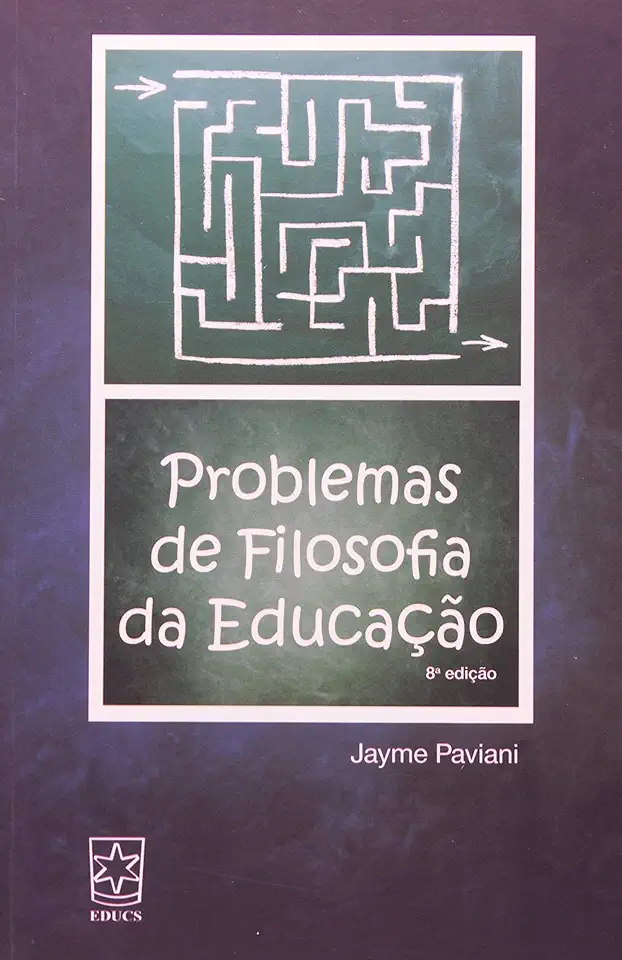
Problems of Philosophy of Education - Jayme Paviani
Problems of Philosophy of Education: A Comprehensive Exploration of Educational Theory and Practice
Introduction: Delving into the Heart of Educational Philosophy
In the realm of education, the pursuit of knowledge and understanding extends beyond the confines of the classroom. It delves into the very foundations of educational theory and practice, raising profound questions that challenge our assumptions and shape our approach to teaching and learning. Jayme Paviani's seminal work, "Problems of Philosophy of Education," embarks on an intellectual journey that grapples with these fundamental issues, offering a comprehensive exploration of the philosophical underpinnings of education.
Unraveling the Nature of Education: A Philosophical Inquiry
At the heart of Paviani's analysis lies the question: What is education? This seemingly straightforward query opens a Pandora's box of philosophical complexities, as the author delves into the various conceptions of education that have shaped educational thought throughout history. From the classical ideals of Plato and Aristotle to the progressive theories of John Dewey and Paulo Freire, Paviani presents a panoramic view of educational philosophies, highlighting their strengths, limitations, and implications for educational practice.
The Aims of Education: Purpose and Direction in Learning
Education is not merely a process of knowledge acquisition; it is a journey of personal growth, social transformation, and the pursuit of human flourishing. Paviani explores the diverse aims of education, ranging from the cultivation of intellectual faculties to the development of moral character, social responsibility, and critical thinking skills. By examining the philosophical foundations of educational aims, the author provides a framework for educators to articulate their own educational goals and align their teaching practices accordingly.
Curriculum and Pedagogy: Content and Methods of Education
The content and methods of education are inextricably linked to the philosophical underpinnings of education. Paviani examines the intricate relationship between curriculum and pedagogy, exploring how the selection of knowledge, skills, and values to be taught shapes the teaching approaches employed in the classroom. Drawing on philosophical insights, the author offers a critical analysis of various curricular models and pedagogical practices, empowering educators to make informed decisions about what and how to teach.
The Role of the Teacher: Facilitator, Mentor, and Guide
The teacher stands at the heart of the educational process, serving as a guide, mentor, and facilitator of learning. Paviani delves into the philosophical dimensions of the teaching profession, examining the nature of the teacher-student relationship, the teacher's role in fostering critical thinking, and the ethical responsibilities of educators. By exploring the philosophical foundations of teaching, the author provides a deeper understanding of the teacher's role and the qualities that make an effective educator.
Education and Society: The Broader Context
Education does not exist in a vacuum; it is deeply intertwined with the social, political, and cultural contexts in which it operates. Paviani explores the relationship between education and society, examining how educational systems reflect and shape societal values, power structures, and social inequalities. By analyzing the philosophical underpinnings of education in its social context, the author challenges educators to critically examine their own practices and work towards creating more just and equitable educational systems.
Conclusion: A Philosophical Compass for Educators
"Problems of Philosophy of Education" is a tour de force in educational philosophy, offering a comprehensive exploration of the fundamental issues that shape educational theory and practice. Jayme Paviani's profound insights and thought-provoking analysis provide educators with a philosophical compass to navigate the complexities of their profession. This seminal work is a must-read for educators, philosophers, and anyone interested in understanding the deeper dimensions of education and its role in shaping our world.
Enjoyed the summary? Discover all the details and take your reading to the next level — [click here to view the book on Amazon!]